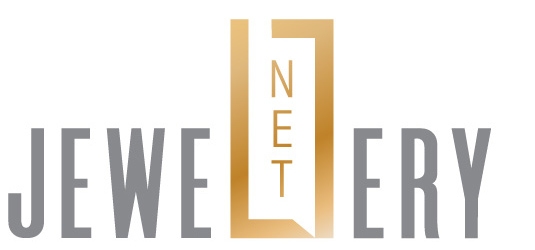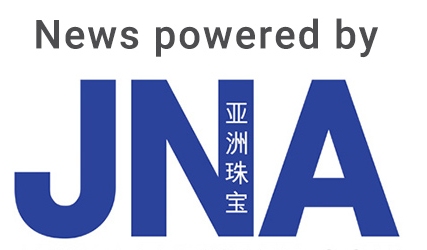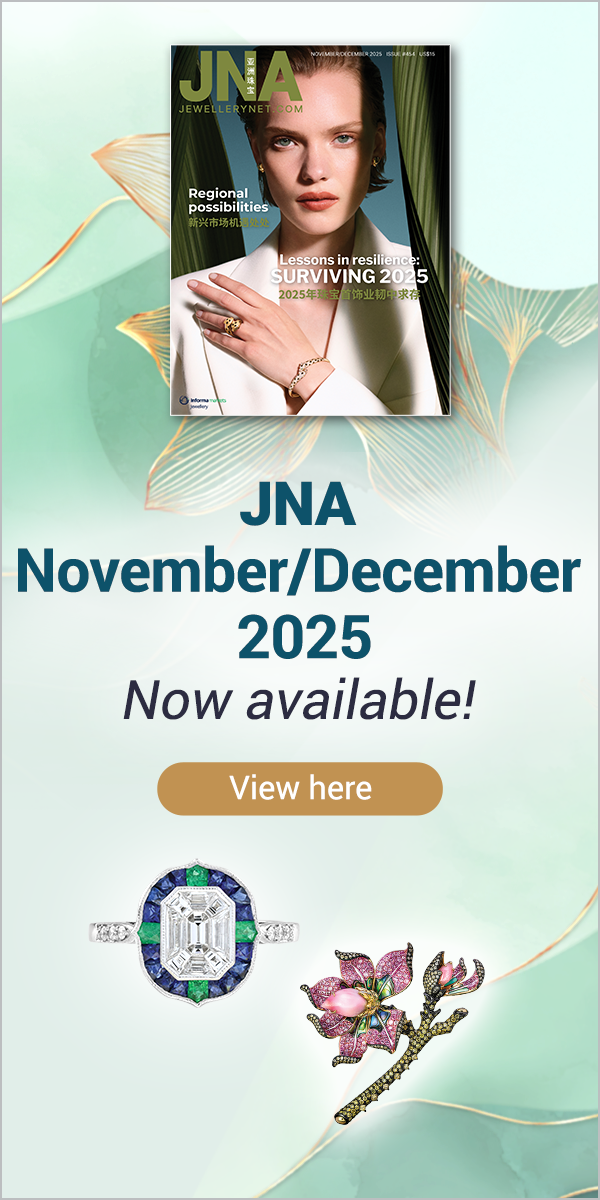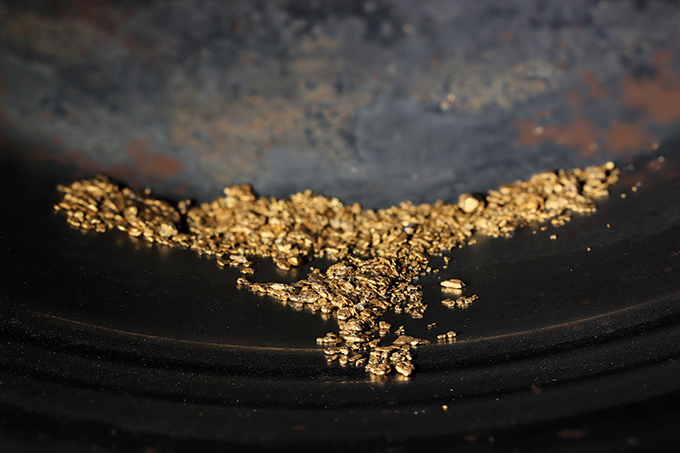The Responsible Jewellery Council (RJC) helps set the sustainability agenda in the watch and jewellery world. Now under new leadership, it is poised to play an even more important role in an increasingly socially conscious market.
This article first appeared in the JNA April/March 2023 issue.
Following a challenging year when it lost key members – and its executive director – over Alrosa’s membership amid the Russia-Ukraine war, the Responsible Jewellery Council (RJC) is regaining its footing as a key proponent of sustainable practices in the jewellery world. Membership continues to grow, with more companies seeking certification to reinforce their Environmental, Social and Governance (ESG) credentials. Jewellery journalist and curator Melanie Grant joined as executive director in late January. She shares with JNA her priorities at RJC and how it can help businesses fulfil their ESG ambitions.
JNA: As executive director of RJC, what changes and new practices will you bring to the organisation and the jewellery industry at large?
Melanie Grant: I would love to actively create a more positive dialogue around the sustainability of watches and jewellery. As the single biggest issue facing the industry today, we know we face serious challenges such as human rights abuses but there are also people doing great things and we should highlight them in powerful ways. If we are to encourage people to be better inside and outside the industry, we need to foster positive, proactive change wherever possible.
I can tell you what we at the RJC are doing. Over the past 18 years, the RJC Code of Practices and Chain of Custody standards have enabled business leaders throughout the entire supply chain to integrate sustainability into the heart of their operations. This is often a complex, multi-layered and ever moving evolution and part of my objective will be to look for ways to simplify how we talk about and how we adopt environmentally conscious practices so that sustainable action is accessible to a broader range of people and businesses.
We opened public consultation last year as a first step to create relevant and credible standards for lab-grown diamonds. A key priority for RJC is to ensure that consumers are confident that the watches and jewellery they buy include the use of fair labour and environmentally conscious practices.
Diversity and inclusion are also important to us, and we will continue to build on our RJC gender equality research. Those under-represented in the industry, either by race, ethnicity, gender, age or lower socio-economic backgrounds (without the family connections or influence to get into the industry) need our support to start and advance their careers. It is still hard to progress for those starting from scratch and I would love to make it easier in some way.
JNA: Please share details of RJC's ESG objectives and codes of practice.
Grant: Since 2005, the industry has shifted and sustainability as a way of working has gone from an afterthought to a major driving force for change. RJC’s standards are at the heart of that change. Our standards enable companies, from mining to retail, to integrate responsible business practices into their management systems and daily operations. There are two standards available to RJC members: RJC Code of Practices (COP) and RJC Chain of Custody (CoC).
Sustainability is a journey of continuous improvement and RJC standards are updated every five years through open public and industry consultation. RJC produces reports, research and toolkits to enable sustainability action and deepen consumer confidence in the watch and jewellery industry.
RJC’s COP defines the requirements for responsible business practices throughout the entire jewellery and watch supply chain. It provides a common standard for ethical, social, human rights and environmental practices. COP certification is mandatory for all our commercial members. The COP is a comprehensive manual for a sustainable and responsible jewellery supply chain, covering all aspects including mining, refining, cutting and polishing, manufacturing and retail. It details management practices to ensure responsible business including labour and human rights due diligence, health and safety, gender equality, non-discrimination and product integrity and disclosure. The 2019 COP is also aligned with the OECD Due Diligence Guidance for Responsible Supply Chains for Minerals from Conflict-Affected and High-Risk Areas and the UN Guiding Principles on Business and Human Rights.
The RJC CoC Standard defines an approach for companies to handle and trade gold, silver and platinum group metals in a way that is traceable and responsibly sourced. CoC certification is voluntary and complements certification against our COP, which is mandatory for all members.
JNA: Why are ESG credentials becoming increasingly important to consumers?
Grant: Modern shoppers are more empowered, connected and able to act to find products and employers who share their values than ever before. Covid gave people the time and focus deepened around the understanding of sustainability beyond environmental issues to include fair labour practices, which in turn highlighted the critical role responsible employers can play in our local communities. Whether it is repurposing luxury manufacturing to create PPE equipment or jewellery retailers making a commitment to save jobs on the high street, responsible businesses raised the expectations of shoppers and talent.
JNA: What challenges do your members and other companies face in meeting ESG goals and how can they address these?
Grant: The two universal challenges of business transformation are implementation and impact. Our role is to enable our members to successfully implement the Code of Practices and achieve certification. The team at RJC works incredibly hard to support our membership. We are a support system for positive change and the ESG goals are at the heart of that.
The RJC Code of Practices standard is a good starting point for any business interested in integrating sustainable business practices into their daily operations and management systems. Free training, toolkits and guidance on each of the provisions of the standards are available from the RJC website and events throughout the year. The important step is to take a first step.
JNA: Following recent controversies surrounding the suspension of Alrosa’s membership, how will RJC measure members' efficiency in positioning themselves within an acceptable ESG framework?
Grant: War in Europe was an unprecedented geopolitical event that no one foresaw and one which our Articles of Association had not anticipated. We have since moved aggressively to evolve and future-proof our governance, ensuring RJC can act efficiently and effectively on issues that could create reputational risk for us. We have also recently approved a new membership agreement that will be aligned with proposed changes to our Articles of Association. We expect to share updates with the full membership before our next Annual General Meeting, which will likely take place in May 2023.
JNA: How does RJC intend to address public perceptions of greenwashing?
Grant: Consumer confidence is critical for the industry. RJC standards and certification allow member companies to demonstrate their commitment to responsible business and sustainability. Modern consumers are increasingly holding brands accountable for their global impact, actively engaging with them to understand transparency and the positive impacts of sustainability. To avoid greenwashing, industry-wide standards are vital as well as our ability to have conversations about what is not working. The public needs and deserves this from us and we have to work together to instil that confidence. I think we are working towards a time when greenwashing is a thing of the past.












